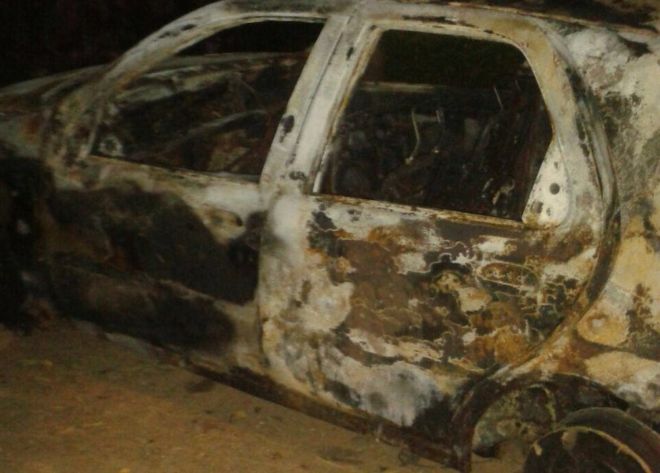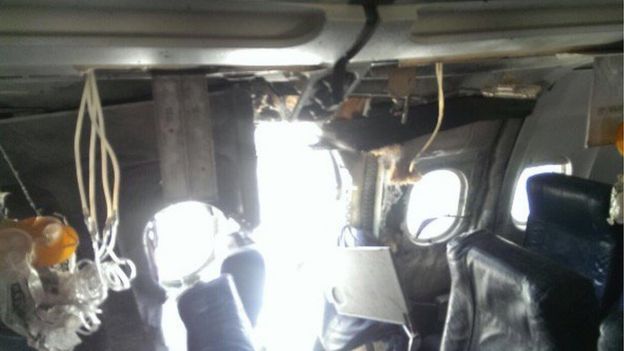
The mob attacked the 21-year-old woman and her three friends - all Tanzanians - as they were passing by the accident site a little later.
The crowd chased the young woman and "removed her top", police said.
Tanzanian embassy officials have sought a report into the incident.
The incident took place on Sunday night, but was first reported only on Tuesday.
Police told BBC Hindi's Imran Qureshi in Bangalore that a mob gathered in Hessarghatta area after an allegedly drunk student from Sudan ran his car over a woman sleeping on the roadside.
The mob beat up the man and set fire to his car, but he managed to escape.
"About 30 minutes later, the four [Tanzanian] students, including the woman, were passing by when they stopped to inquire what had happened. That was when they were attacked," Bernandoo Kafumu, president of the Tanzanian students' association at the local college, said.
"The woman did not even know the [Sudanese] man who was involved in the accident," said a member of the association who did not want to be named.
"After they were attacked, the Tanzanians ran back to their car and tried to drive away, but there was an obstacle on the road. So they got down and ran. She ran for her life. The local people chased her and removed her clothes," he added.
The mob also set the women's car on fire.
A senior police official confirmed that "her top was torn and removed, but there was no sexual assault".
"After the news appeared in a section of the local media on Wednesday, we asked her to lodge a complaint. We are now following all procedures, we are getting her medically examined," TR Suresh, deputy commissioner of police for north Bangalore, told BBC Hindi.
Bangalore, often called India's Silicon Valley for being the hub of global software firms, is home to hundreds of foreign students, including 150 from Tanzania.
But, there have been clashes between them and locals.
"We are living in fear. The government and the police must do something about it," an African woman studying in the city said.
"There have been small incidents. It largely relates to some students playing loud music at night," Mr Kafumu said.







